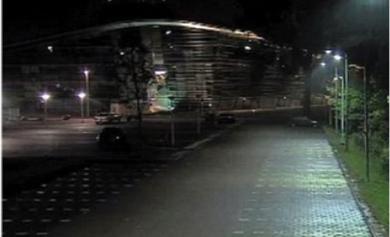
There’ll be no need to remember to turn the lights off if a pioneering lighting system developed in the Netherlands is successful.
Delft University of Technology (TU Delft) is currently testing an intelligent street lighting system on its campus, which uses up to 80 per cent less electricity than the current systems and is also cheaper to maintain.
The system is made up of streetlights with LED lighting, motion sensors and wireless communication, which means it dims the lights when there are no cars, cyclists or pedestrians in the vicinity – saving valuable energy when no one needs the light, the university said.
The system was developed by TU Delft alumnus Management of Technology Chintan Shah, who had the bright idea of introducing dimming lights and motion sensors to make up a system of street lights, Science Daily reported.
The Netherlands spends more than 300 million euros a year on electricity for street lighting, while the network of street lighting also emits over 1.6 million tonnes of CO2 a year.
In Shah’s system, all surrounding streetlights light up if anyone approaches but the lights never go out completely. Instead, they are dimmed to approximately 20 per cent of their standard power, reported the university.
And maintenance workers no longer need to hunt for any failures in the system as the lights automatically send messages about problems to the control room.
The aim of the pilot on the TU Delft campus is to thoroughly test and make adjustments to the system.
If the trial is successful, Britain could benefit from the intelligent system.
Currently, the UK’s 7.5million street lamps cost an estimated ?500 million a year to run and councils around the country are desperately trying to cut their energy bills.
Many councils plan to impose blackouts after midnight in rural and residential areas by switching lights off completely or fitting dimming lights.
–Daily Mail, London
?

